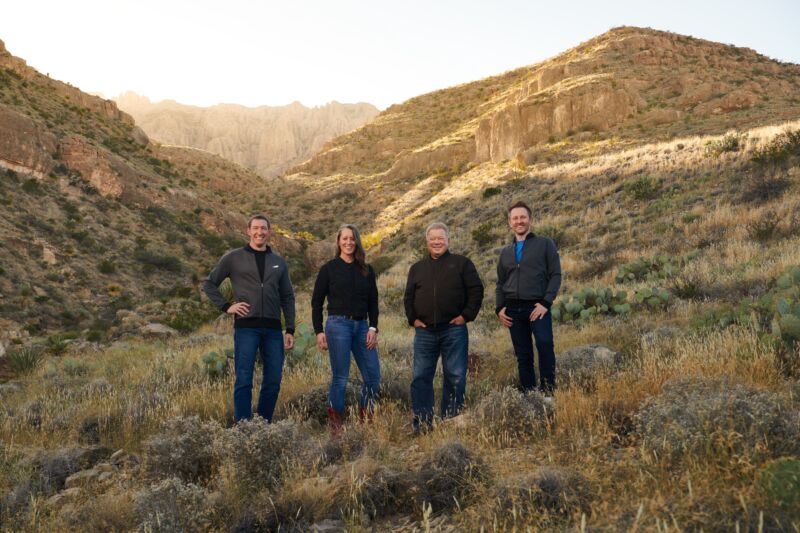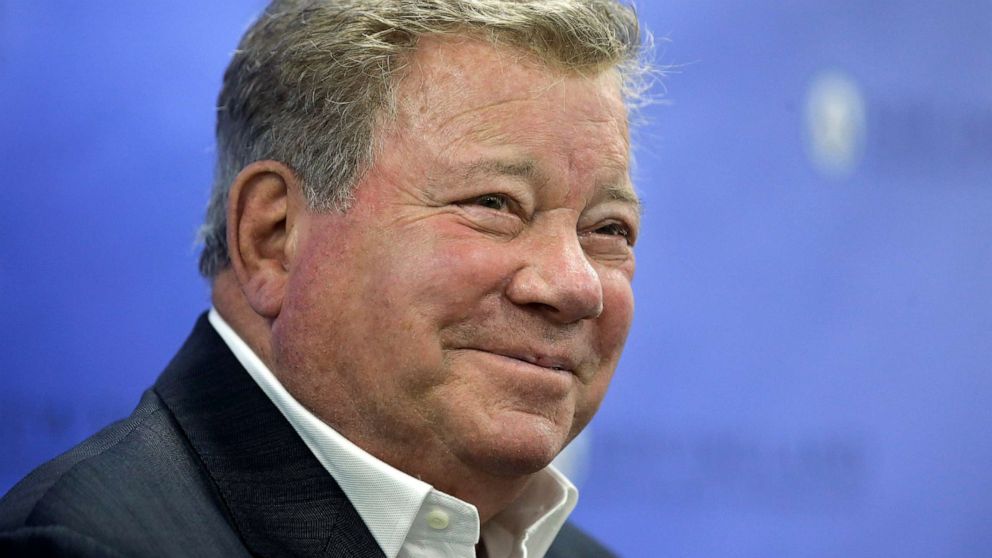
11:10 am ET Update: Although the launch was delayed nearly an hour due to unspecified issues, Blue Origin's New Shepard spacecraft successfully took off from West Texas on Wednesday morning and safely landed 10 minutes and 18 seconds later. The capsule crested at an altitude of 107 km.
This was Blue Origin's second human spaceflight and garnered widespread attention because among the crew was Star Trek actor William Shatner, a guest of Blue Origin founder Jeff Bezos. “That’s unlike anything I’ve ever felt before," Shatner said upon landing. "Everybody in the world needs to do this."
Blue Origin will now target one more crew flight in 2021, with six yet-unnamed passengers, likely to take place in December. The cadence for human suborbital missions should ramp up to 6 to 12 passenger flights in 2022. The main impediment to increasing cadence is believed to be heat shield refurbishment—there is plenty of demand from customers, even at prices of $1 million and higher for a seat on early missions.
Original post: Admittedly, there are many reasons to be cynical about today's human spaceflight on Blue Origin's New Shepard launch system.
The company founded by Jeff Bezos has not covered itself in glory of late, falling years short of delivering rocket engines to a key customer, United Launch Alliance, and suing another—NASA—after failing to win a contract to build a lunar lander. Thanks to Blue Origin's lawsuit, NASA's work with SpaceX on the Human Landing System has been on hold for nearly five months.
Then there are the recent revelations about a "toxic" work culture at the company. Some former and current employees, all unnamed except Alexandra Abrams, who left the company in 2019, have decried a sexist workplace and other cultural ills that have held Blue Origin back from fulfilling its potential.
On the eve of the New Shepard-18 flight, which will carry actor William Shatner briefly into space and above Earth's atmosphere, Abrams said she hoped the crew of four will have a safe and nominal flight. But she was pulling no punches when it came to Blue Origin, its founder Jeff Bezos, and how far she felt the reality of Blue Origin's actions had strayed from his soaring vision.
"I grew up on Star Trek, and I remember when Jeff Bezos toured Shatner around Blue in Kent, Washington, in 2019," she said. "To me, Shatner’s presence serves as a reminder of how unlike the aspirational Federation we are today, and will continue to be, if nothing changes. Star Trek is about exploring our shared humanity and evolution as a species; I worry we're becoming the Ferengi of our own story."
Bezos seems oblivious to this kind of criticism. In response to an article about Abrams and concerns of many other employees in the newspaper he owns, The Washington Post, Bezos tweeted an image of a 1995 article in Barron's criticizing Amazon. "Listen and be open, but don’t let anybody tell you who you are," Bezos said. "This was just one of the many stories telling us all the ways we were going to fail."
But it's not at all clear that Bezos is listening or being open to valid criticism of Blue Origin.
Finally, there can be no question that inviting Shatner to fly as a guest on just the second human flight of New Shepard is a marketing ploy. This mission lacks the novelty of the first crewed flight—carrying Bezos—and interest would otherwise have been low for sending two millionaires (Chris Boshuizen and Glen de Vries) and Blue Origin employee Audrey Powers into space for a few minutes.
I asked Twitter followers on Tuesday whether they thought the spectacle of flying Shatner to space was more "marketing" or more "marvelous," and by a three-to-one margin they voted for "marketing."
As someone who has written about space for decades and watched most episodes of most Star Trek series, I would say that flying Shatner into space is marvelous marketing. This flight does not solve any of the problems at Blue Origin, which are substantial. Due to poor management, the company has under-delivered. But Captain Kirk is finally going to space, and it's thanks to Blue Origin and Jeff Bezos.
There are a lot of things to be upset about in the world today, but sending Shatner to space, after he's delivered so much joy to so many for so many years, is not one of them.
The launch is scheduled to occur at 9:00 am CT, local time, in West Texas, or 14:00 UTC. The webcast will begin 90 minutes beforehand.



3175x175(CURRENT).thumb.jpg.b05acc060982b36f5891ba728e6d953c.jpg)

Recommended Comments
There are no comments to display.
Join the conversation
You can post now and register later. If you have an account, sign in now to post with your account.
Note: Your post will require moderator approval before it will be visible.